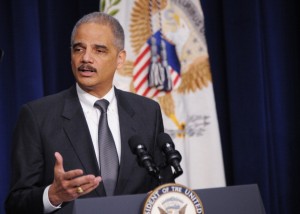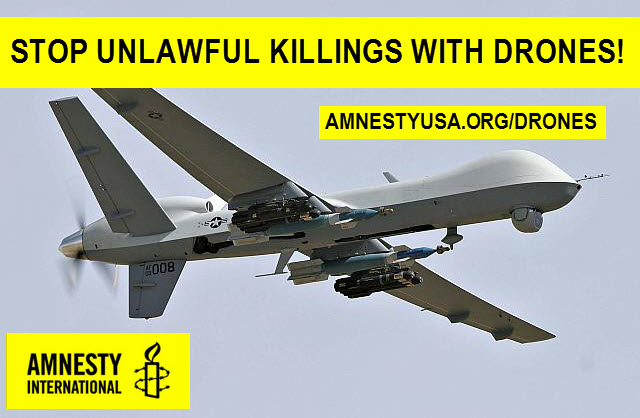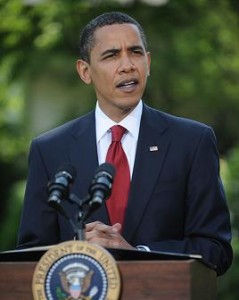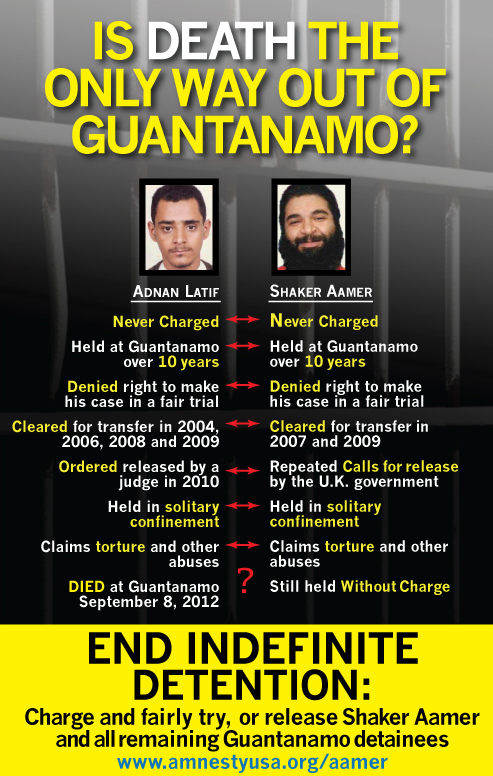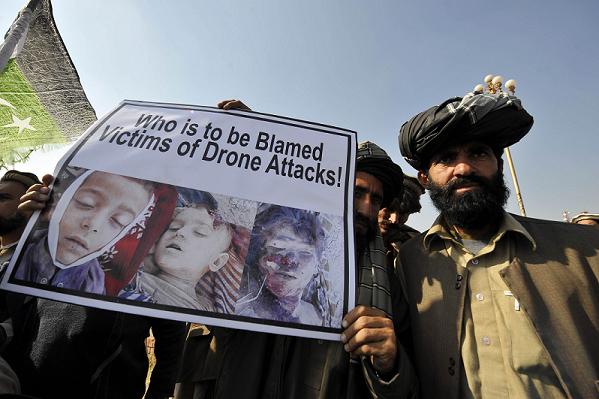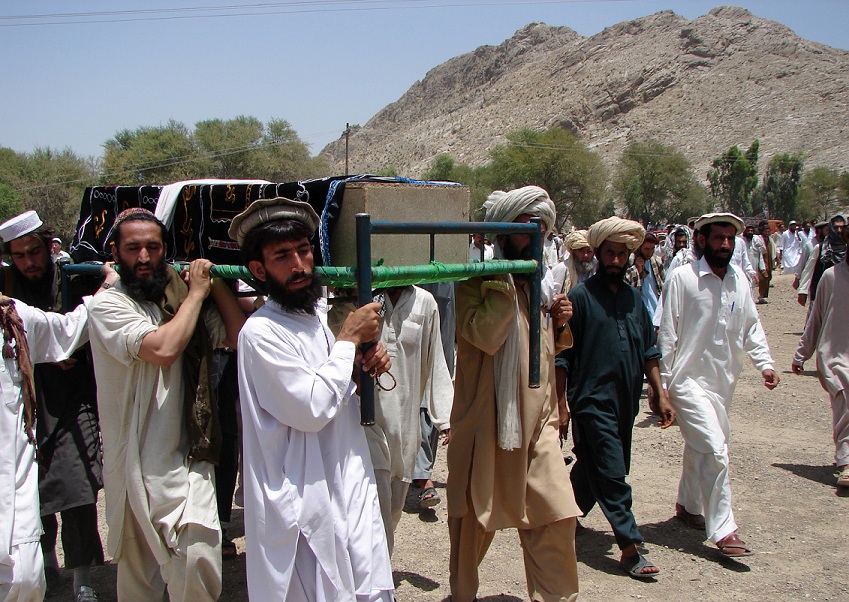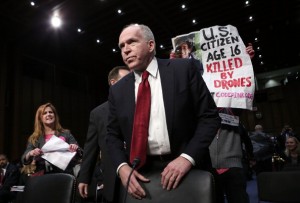
Anti-war protesters disrupt the start of a nomination hearing for U.S. Assistant to the President for Homeland Security and Counterterrorism John Brennan before the Senate Intelligence Committee February 7, 2013 in Washington, D.C. (Photo Credit: Win McNamee/Getty Images)
Yesterday,the Senate Intelligence Committee endorsed a new director of the CIA — John Brennan. He is a controversial figure, and as you read this Senator Rand Paul and a bi-partisan group of Senators may still be attempting to filibuster the final Senate vote on his nomination. (You can check here.)
What’s the controversy? John Brennan is one of the chief architects of the administration’s drone killing policy, which has reportedly resulted in 4,700 people killed so far, according to Senator Lindsey Graham.
Read that number again. 4,700 human beings killed. Call us crazy, but don’t you think the world — including the thousands of people and families directly affected by drone attacks worldwide – deserves to know on what basis the Obama administration claims the right to kill people?
